You woke up this morning and your water felt smooth and soft as normal. But as you’re getting ready to go to bed, you notice that your soap is not lathering well and your water feels hard. Why does your water get harder at night?
There can be several reasons why your water is soft at the beginning of the day but becomes harder at night.
Some of the most common reasons why your water may get harder at night:
- Your Water Softener Is Regenerating At The Wrong Time
- Insufficient Amount Of Salt In Your Water Softener Brine Tank
- Your Water Softeners’ Hardness Setting Is Set Too Low
- You Have Iron In Your Water
- You Are Using More Water Than You Used To
- Running/Dripping Toilets, Sinks, Hose Spigots
- Clogged Injector/Venturi In Your Water Softener
- Clogged Screen In Your Water Softener
- Worn Out Water Softener Resin
If your water gets harder at night, it is most likely because your water softener is not regenerating in the middle of the night when it should be or your water softeners’ resin is not able to remove hardness from your water for the entire day due to several possible reasons.
Is Your Water Softener Regenerating At The Wrong Time?
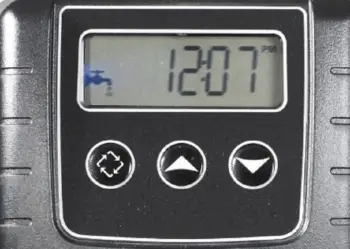
First, check your water softeners’ clock to see if the time is correct!
If the clock on your water softener is ahead of the correct time of day, your water softener will regenerate earlier than it should.
For example: If your water softener is set to regenerate at 2:00 am as most water softeners are, and the clock on your water softener is 2 hours fast, the water softener’s clock will reach 2:00 am 2 hours sooner than it should which means the water softener will regenerate at 12:00 am rather than 2:00 am.
If your water softener clock is 4 hours fast and it is set to regenerate at 2:00 am, it will regenerate at 10:00 pm and you will experience hard water in your home from 10:00 pm until the water softener is done regenerating.
When a water softener is regenerating, the water softener will bypass itself and you will have hard water until the regeneration process is complete.
Is There Sufficient Salt In Your Water Softener Brine Tank?
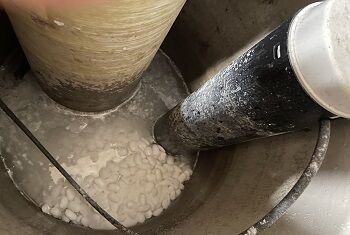
Just because you see some salt at the bottom of your water softener brine tank does not necessarily mean that there is enough salt to create a strong enough brine (salt solution) to properly regenerate the water softener resin inside of your water softener.
A weak brine may not be able to regenerate enough of the resin in your water softener for it to remove hardness from your water in between regenerations.
You can think of brine as the soap that cleans the hardness off of the resin in your water softener so that the resin can continue to remove more hardness from your water.
If the water softener resin does not get a strong enough dose of brine, not enough of the resin will be regenerated, and the resin will not be able to remove as much hardness as it should.
The resin may be able to remove hardness at the beginning of your day, but your water may become harder at night.
Is Your Water Softeners’ Hardness Setting Set Too Low?
Sometimes water hardness can change or your water softener hardness setting may reset to a manufacturer’s preset hardness setting which may be too low for your water hardness.
When the water hardness setting on a water softener is too low, the water softener will not regenerate its water softener resin often enough to provide you with continuous soft water.
In other words, the water softener resin in your water softener will become overwhelmed with hard ions that it has removed from the water to the point where it will no longer be able to remove all of the hardness from your water until the resin has been regenerated again.
By testing your water for hardness, you can determine the amount of hardness in your water and make sure that your water softener is set to the correct hardness setting to remove all of the hardness from your water.
Do You Have Iron In Your Water?
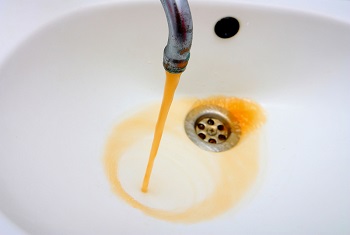
Dissolved (Ferrous) iron in your water can be removed using a water softener, but you need to set your water softener correctly to compensate for the iron or your water softener may not be able to remove the iron and hard ions from your water in between regenerations.
This means that you could have softened water during the day, but your water softener may not have the capacity to soften your water for the entire day which means you could experience harder water at night.
Are You Using More Water Than You Used To?
Although many popular water softeners meter your water usage to ensure that the water softener regenerates its resin often enough to provide you with uninterrupted softened water, some water softeners only regenerate every preset amount of days.
If your water usage goes up, your water softener may not be able to soften your water for as many days as it is set for which means you could experience harder water the night before the water softener is scheduled to regenerate.
If your water usage has gone up, you may need to reduce the days between regeneration on your water softener so the water softener resin will get regenerated often enough to provide you with uninterrupted softened water.
Do You Have Any Running/Dripping Toilets, Sinks, Or Hose Spigots?
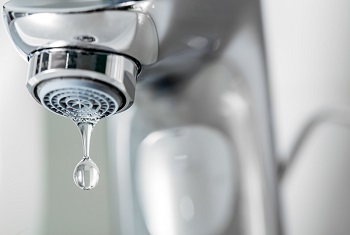
A water softener has a limited capacity to remove hardness from water.
Once the capacity of the water softener resin within a water softener has been reached, the water softener resin will no longer be able to remove more hardness from your water.
Even a slow-dripping faucet or a trickling toilet will use up some of the capacity or the resin in a water softener.
Essentially, wasted water equates to wasted water softener resin capacity which can lead to the capacity of the resin to be used up before the water softener is set to regenerate the resin.
This means that you will experience hard water from the time that your resin has reached its maximum capacity until the water softener regenerates the resin. Dripping faucets, running toilets, or dripping hose spigots will all contribute to using up your water softener’s resin capacity.
You May Have A Clogged Injector/Venturi In Your Water Softener.
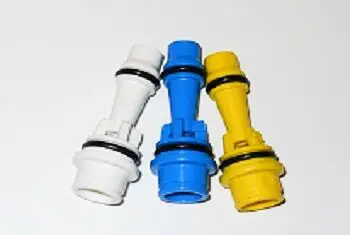
The injector/venturi of a water softener creates the draw that is needed to draw the brine from a water softener brine tank. If the injector/venturi of a water softener becomes clogged or blocked, it will fail to draw the brine fast enough to provide a strong brine to regenerate water softener resin.
Even though a weak brine may regenerate some of the resin in a water softener to provide softened water for a period of time, it may not regenerate enough resin to provide soft water between regenerations which could lead to harder water the night that the water softener is scheduled to regenerate.
You May Have A Clogged Screen In Your Water Softener.
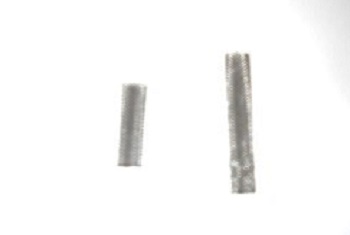
Many water softeners have a screen before the injector/venturi to prevent debris from clogging the injector/venturi.
If enough debris covers this screen, it will restrict the draw that is created by the injector/venturi which can lead to an insufficient amount of resin being regenerated to provide soft water between water softener regenerations.
Your Water Softeners Resin May Be Worn Out.
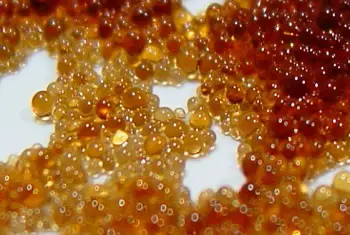
When the resin in a water softener removes hard ions from your water, the hard ions cling to the resin beads and can slowly create tiny imperfections in the resin beads that will eventually inhibit the ability of the resin to remove hardness from your water.
Excessive hardness, iron in the water, and debris in the water can cause significant wear and tear to water softener resin. Chemicals like chlorine which is commonly used to disinfect water can also affect water softener resins’ ability to remove hardness from your water.
As water-softener resin ages, it will slowly lose its water-softening effectiveness and you may first notice this because your water becomes harder on the night that your water softener is scheduled to regenerate.
When this happens, the water softener may need to be reprogrammed to regenerate more frequently to prevent your water from becoming harder on the night that your water softener would normally regenerate.

